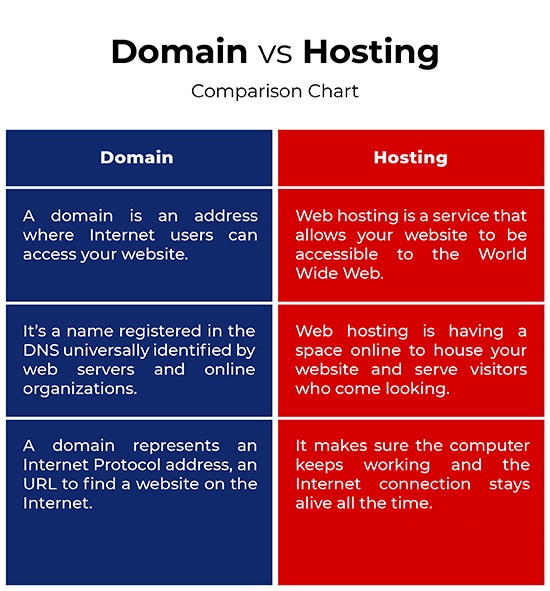Understanding the Difference Between Domain Name and Web Hosting
When it comes to setting up a website, there are two essential components that are crucial to consider: the domain name and web hosting. While some people often confuse these two terms, they are actually two separate and distinct elements that play different roles in the overall functionality of a website. In this article, we will break down the differences between domain name and web hosting to help you better understand their importance in creating a successful online presence.
What is a Domain Name?
A domain name is essentially the address of your website that people type in their web browsers to access your site. It serves as the online identity of your website and is unique to your brand or business. For example, google.com is the domain name for the search engine giant Google.
When you register a domain name, you are essentially renting that specific web address for a certain period of time, usually on an annual basis. Domain names are purchased through domain registrars, such as GoDaddy or Namecheap, and can cost anywhere from a few dollars to hundreds or even thousands of dollars, depending on the domain extension and the popularity of the name.
It is important to choose a domain name that is relevant to your website’s content and easy to remember. A good domain name can help establish brand recognition and make it easier for users to find and remember your website.
What is Web Hosting?
Web hosting, on the other hand, refers to the service that stores and serves the content of your website to users when they visit your domain name. Think of web hosting as the physical space where your website files, images, and other data are stored. Without web hosting, your website would not be accessible to anyone on the internet.
Web hosting providers offer various hosting plans that cater to different website needs, such as shared hosting, VPS hosting, dedicated hosting, and cloud hosting. Each type of hosting has its own features, benefits, and price points, so it is important to choose the right hosting plan that suits your website’s requirements.
When selecting a web hosting provider, factors to consider include uptime guarantee, server speed, storage capacity, customer support, and security measures. A reliable web hosting service is essential for ensuring that your website runs smoothly and is always accessible to users.
The Relationship Between Domain Name and Web Hosting
While domain names and web hosting are separate entities, they are interconnected in the sense that you need both to have a functioning website. When a user types in your domain name in their web browser, the domain name system (DNS) translates that name into the IP address of your web hosting server, which then serves the requested web pages to the user.
It is important to choose a reliable web hosting provider that offers good uptime, fast server speeds, and excellent customer support to ensure that your website performs optimally. Additionally, having a memorable domain name that reflects your brand and is easy to remember can help drive traffic to your website and improve your online presence.
Conclusion
In summary, while domain names and web hosting serve different functions in the realm of website creation, they are both crucial elements that work together to make your website accessible to users on the internet. By understanding the differences between domain name and web hosting and how they are interconnected, you can make informed decisions when setting up your website to ensure its success and visibility online.
